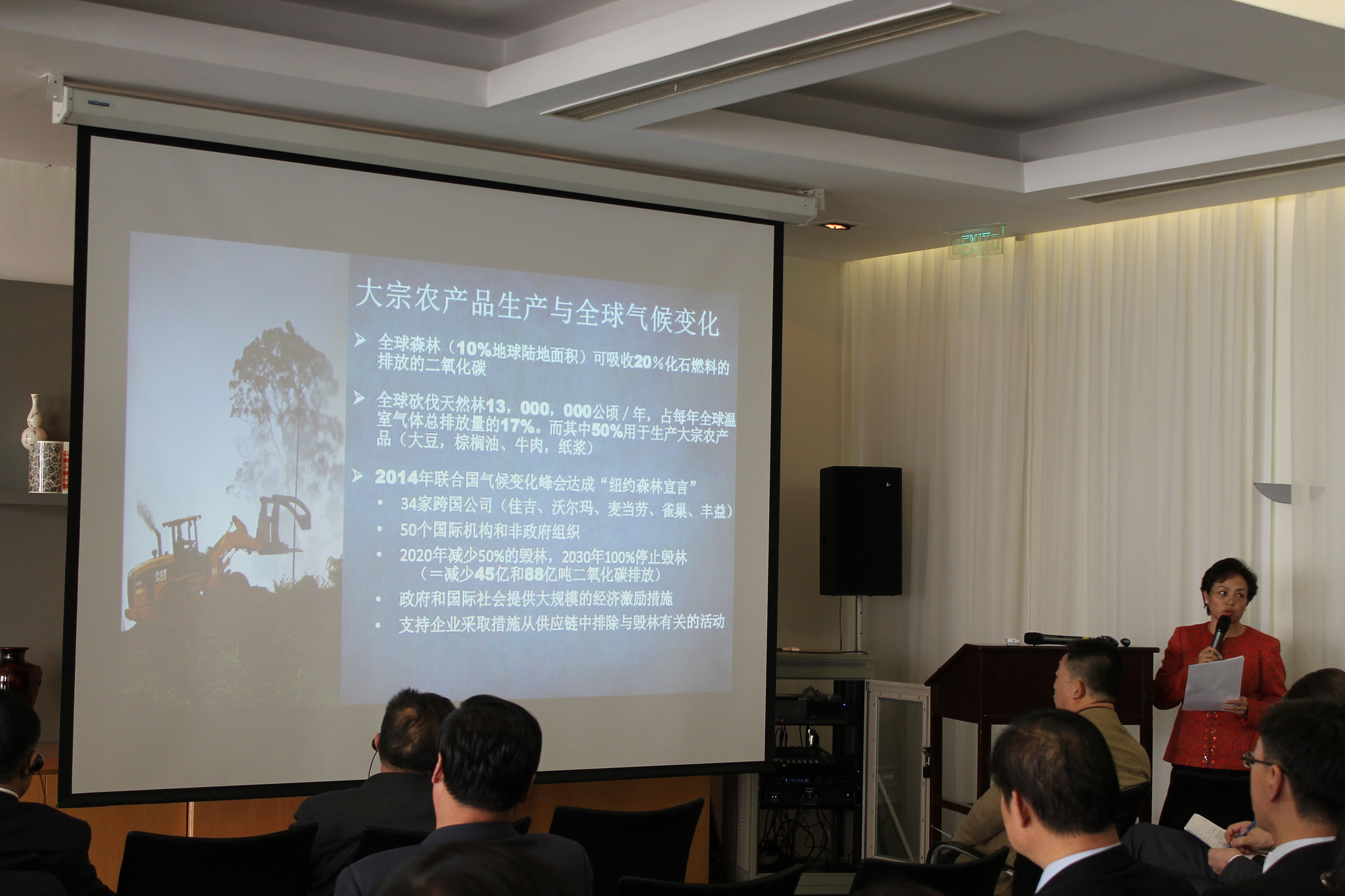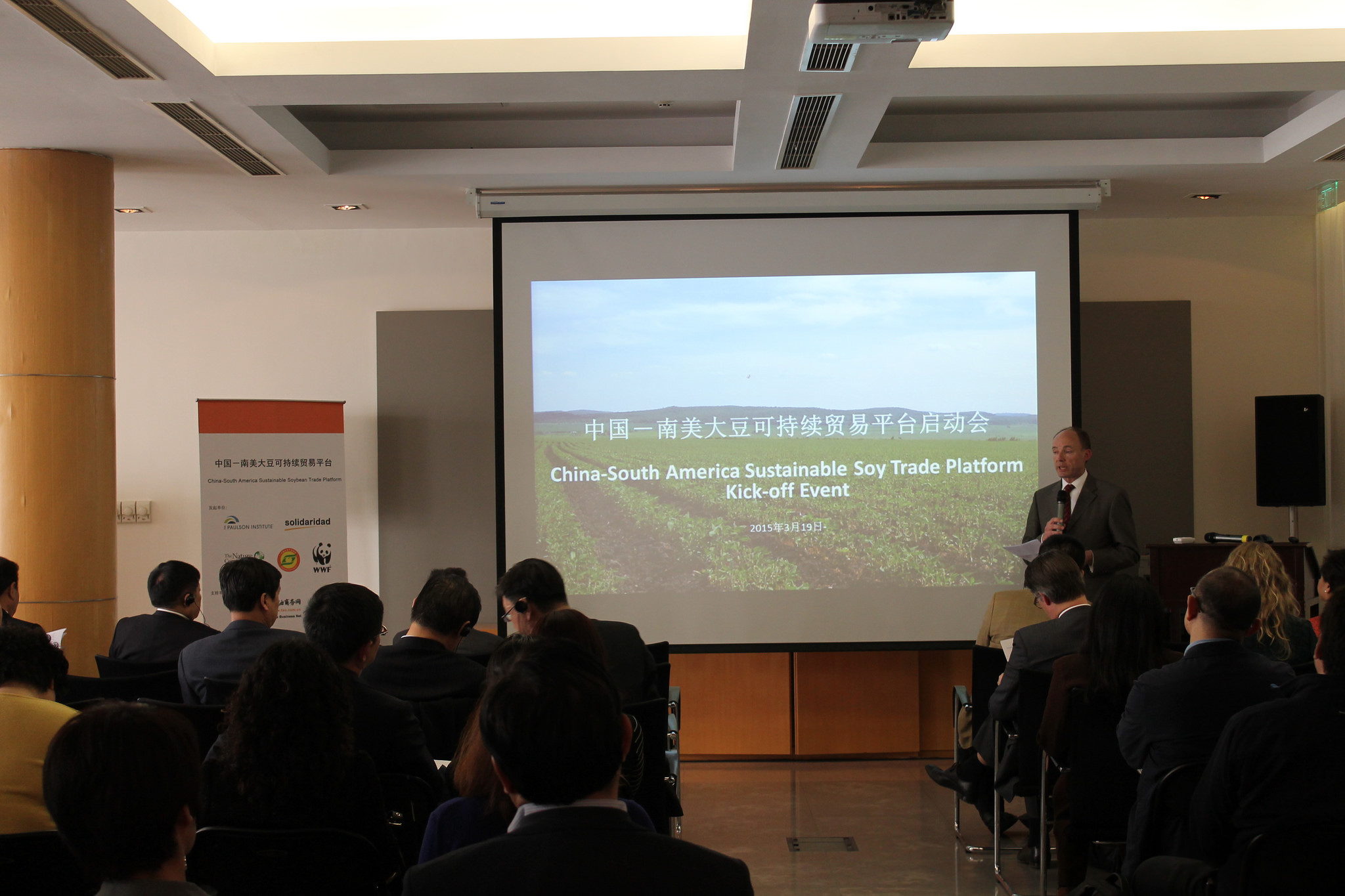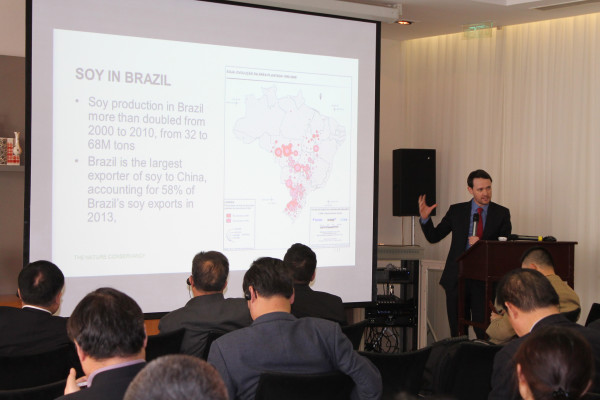
The Paulson Institute, in partnership with Solidaridad, The Nature Conservancy and WWF, has launched a China-South American Sustainable Soybean Trade Platform aimed at supporting China as a promoter of sustainable practices in global soy markets. The kick-off event, on March 19, 2015 at the Dutch Embassy in Beijing, provided background and information to potential member companies and other stakeholders. More than 60 guests, mostly senior leaders from some of China’s largest soy importing companies, including Huifu, Jiusan, Chongqing Grains, COFCO, and Sinograin, attended the event. Representatives from multinational companies such as Cargill and large feeds producers CP Group and New Hope also joined the event.
The new program is focused on China and Brazil, which are the two largest players in the international soy market. Last year, China’s soybean purchases represented 65% of the global trading volume, followed by the Netherlands, whose leading importers have already vowed 100 percent sustainably sourced soy in 2015, with 3%. Brazil is the largest supplier of soy to the world, and to China, which accounted for some 58% of Brazil’s soy exports in 2013.

“We are very happy to host this first gathering of key soy stakeholders in China to explore effective strategies to promote sustainability of the global soy industry,” Deputy Ambassador for the Netherlands Andre Driessen said in his welcome speech. “I strongly believe that when the world’s number one and number two importing countries join hands, we can find a good way to do good things for the planet, and to do good business as well.”
As such an important importer, China has an opportunity to positively influence Brazilian soy production, which has contributed to serious deforestation and conversion of other natural habitats in the Amazon. “Clearing forests for soy and other food, fuel and fiber commodities such as beef and palm oil is one of the largest sources of carbon and greenhouse gas emissions on the planet,” said Paulson Institute Chief Conservation Officer Rose Niu. In addition to accelerating climate change, she added, conversion of the natural habitats also threatens local ecosystems and biodiversity.

The ultimate goal of the trade platform is to ensure that all soy exported from Brazil to China is sourced from producers enrolled in a Brazilian rural environmental registration system (called CAR) that requires farmers to adhere to some of the strictest forest codes in the world. A Soy Working Group in Beijing, which will include representatives from major Chinese soy importers and other big soy users, as well as international companies with a presence in both Brazil and China, will work on developing and sending market demand signals to promote implementation of the CAR system in Brazil. Future phases of the project will expand to Argentina and Paraguay.
Along with its partners, the Paulson Institute will be facilitating this group over the next two years to work effectively with the Chinese government and other players to send a clear signal that China requires high levels of sustainability in its soy imports.
“So far, the response from Chinese companies has been very positive,” Niu said after the event. “I think that stems from the fact that Chinese citizens are increasingly feeling that they have the power, as well as the responsibility, to contribute to a more sustainable world.”
For a more detailed summary of the event, please click here:



